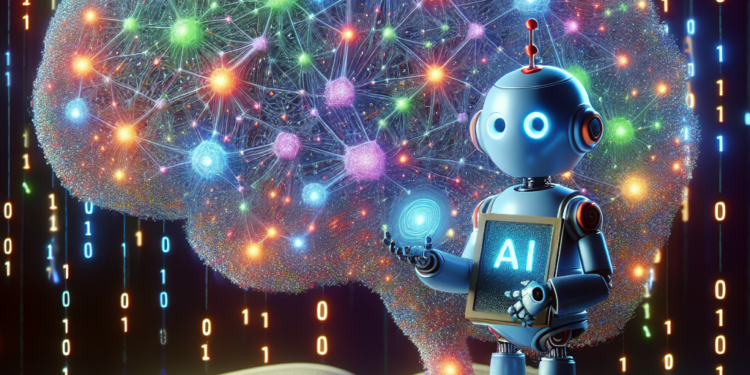Artificial Intelligence (AI) is a rapidly growing field that promises to revolutionize the way we live, work, and interact with technology. As a beginner, it can be overwhelming to understand the complexities and implications of AI. This article aims to provide a basic overview of AI for beginners, covering the fundamental concepts, applications, and ethical considerations surrounding AI.
What is Artificial Intelligence?
At its core, AI refers to the development of computer systems that can perform tasks that typically require human intelligence. These tasks may include reasoning, learning, problem-solving, perception, understanding natural language, and even decision-making. AI systems are designed to mimic human cognitive processes, enabling them to analyze data, detect patterns, and make decisions based on that information.
There are several types of AI, including narrow AI, general AI, and superintelligent AI. Narrow AI, also known as weak AI, is designed to perform a specific task or set of tasks, such as speech recognition or image classification. General AI, on the other hand, is capable of performing any intellectual task that a human can do. Superintelligent AI refers to AI systems that surpass human intelligence and have the ability to outperform humans in virtually every cognitive task.
Applications of Artificial Intelligence
AI is being used in a wide range of industries and applications, from healthcare and finance to transportation and entertainment. In healthcare, AI is being used to analyze medical images, predict disease outbreaks, and personalize patient care. In finance, AI is being used for fraud detection, algorithmic trading, and customer service. In transportation, AI is being used to optimize traffic flow, improve safety, and develop autonomous vehicles. In entertainment, AI is being used to create personalized content recommendations, enhance gaming experiences, and generate music and art.
Machine Learning and Deep Learning
Machine learning is a subset of AI that involves the development of algorithms that can learn from and make predictions or decisions based on data. Machine learning algorithms can be divided into supervised learning, unsupervised learning, and reinforcement learning. In supervised learning, the algorithm is trained on a labeled dataset, where the input and output are known. In unsupervised learning, the algorithm is trained on an unlabeled dataset, where the input and output are unknown. In reinforcement learning, the algorithm learns through trial and error, receiving feedback from the environment.
Deep learning is a subset of machine learning that involves the development of artificial neural networks inspired by the structure and function of the human brain. Deep learning algorithms consist of multiple layers of neurons that process data hierarchically, enabling them to learn complex patterns and representations. Deep learning has been particularly successful in tasks such as image recognition, speech recognition, and natural language processing.
Ethical Considerations
As AI continues to develop and proliferate, there are important ethical considerations that must be taken into account. These considerations include issues such as bias, transparency, accountability, privacy, and job displacement. AI systems are only as good as the data they are trained on, and if the data is biased or unrepresentative, the AI system may produce biased or unfair outcomes. Transparency refers to the need for AI systems to explain their decisions and actions in a way that is understandable to humans. Accountability refers to the need for AI developers and users to be held responsible for the actions of AI systems. Privacy refers to the need to protect personal data from unauthorized access or use. Job displacement refers to the potential impact of AI on employment, as AI systems may automate tasks that were previously performed by humans.
Conclusion
In conclusion, AI is a powerful and transformative technology that has the potential to revolutionize the way we live, work, and interact with technology. As a beginner, it is important to understand the fundamental concepts, applications, and ethical considerations surrounding AI. By gaining a basic understanding of AI, beginners can better appreciate the capabilities and limitations of AI systems, and contribute to the ongoing conversation about the responsible and ethical development of AI.













